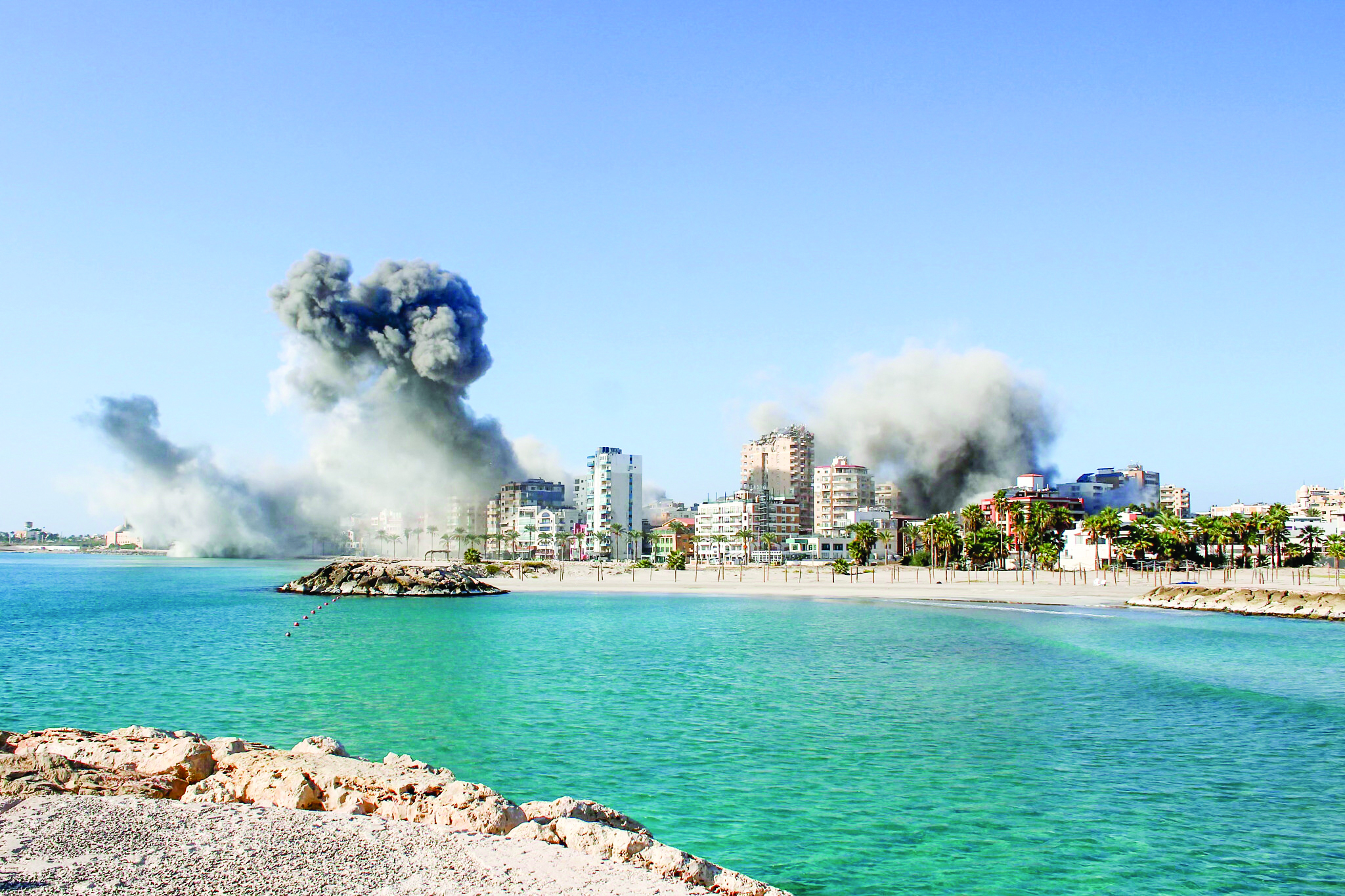Saturday’s attack by Israel on Iranian military assets proved beyond doubt that when it comes to conventional warfare, there is no parity between the two countries. The fact that over a hundred Israeli fighter jets, primarily comprising non stealth aircraft like F-15 and F-16, not only crossed Iran’s borders but also went deep inside by 500-600 km, without any resistance, or that Iran’s radars and missile defence systems like the Russian S-300 were not able to shoot down a single aircraft, are proof of Iran’s lack of military expertise. So all that talk about Iran being a military power in West Asia, is just that—talk. Israel had planned to target around 20 crucial military targets, including Islamic Revolutionary Guard Corps (IRGC) bases. According to the Israel Defense Forces (IDF), it was able to carry out precision strikes against them and cause serious damage. In fact, information is coming that quite a few IRGC soldiers have died in Saturday’s attack, even though officially, the Iranian government is admitting to the death of only two—just as the Chinese had suppressed all information about the number of soldiers, around 60, it had lost in Galwan in 2020 against India. Importantly, the Israeli fighter jets were able to incapacitate Iran’s radars and the S-300 missiles defence systems that Iran has. This is significant because these systems were guarding important energy, including nuclear, related sites. It’s not going to be easy to repair and revive these systems, because according to experts that process may take more than two years. Replacing them with new systems from Russia will take many more years. In August, Iran had claimed that Russia had started delivering to Tehran its S-400 missile defence system. However, given that the S-400s are supposed to have come in a deployable state, the question is why they too were ineffective in stopping the attack by the Israelis. There is a possibility that Iran has not been able to raise a force that is capable of operating these systems and cannot do that overnight. Hence, Saturday’s attacks have given a huge window of opportunity to Israel to take out Iran’s oil and nuclear installations as and when it requires to do so. Such a requirement may arise if Iran retaliates. The big question now is: Will Iran retaliate?
Israel’s attacks had come as a response to Iran firing 180 ballistic missiles on Israel on 1 October, which hit a few military targets, but didn’t cause much damage. In response, Israel’s attack was controlled and precise, and directed only towards Iran’s military targets. Israel was under US pressure not to hit any energy (oil, gas and nuclear) installations or symbols of government less than two weeks ahead of the US elections. With the election over on 5 November, Israel is under no such pressure and any retaliation by Iran to save face may result in a full-scale assault on all the targets that Israel avoided hitting this time. If that happens, then there is a serious possibility of a major disruption in the global energy industry. Also, any possible hit on Iran’s nuclear installations may have major ramifications for the whole region and beyond. The war may also spiral out of control, with bigger players getting involved, specifically the United States and Russia. The other possibility is that instead of an open retaliation, Iran may try to mobilise its terrorist proxies even further, notwithstanding the fact that at least two arms of the Iranian octopus are seriously compromised—Hamas is near decimated and Hezbollah is majorly incapacitated.
It would be prudent on Iran’s part to get out of this war with its national pride intact, instead of devoting resources and manpower in its attempt to erase the Jewish state from the face of the earth—an impossible dream. How long can a sanctions-hit Iran, already lacking in resources, keep fighting this unwinnable war? Wouldn’t it be better to devote time, energy and money in ensuring the development of its own people? But for that realisation to come, countries need leaders and statesmen. It is not certain Iran’s clerics are capable of reaching that state, yet.







